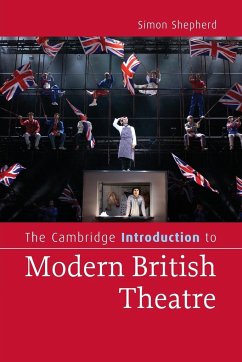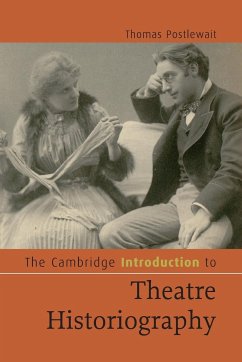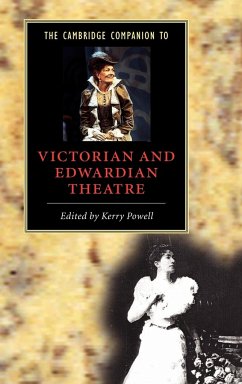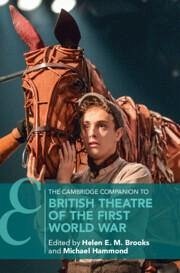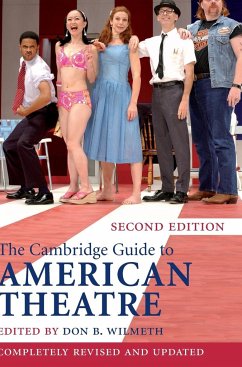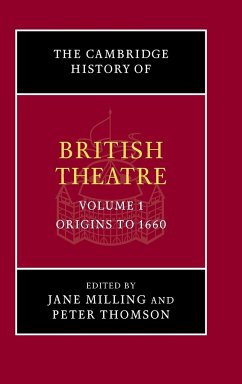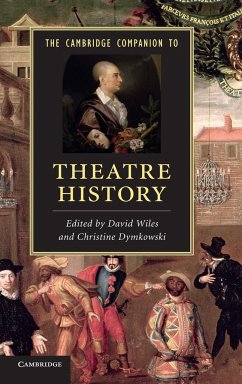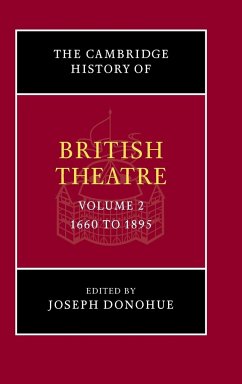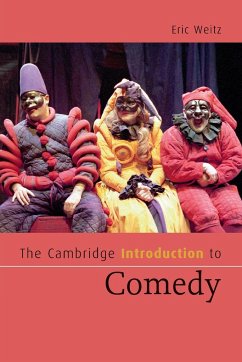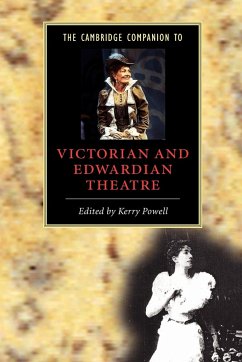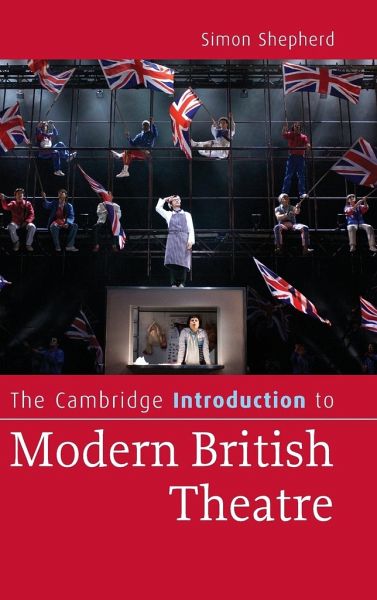
The Cambridge Introduction to Modern British Theatre

PAYBACK Punkte
26 °P sammeln!
British theatre has long been regarded as a world-leader in terms of its quality, creativity and range. Starting in 1900, this book introduces the features that characterise modern and current British theatre. These features include experimental performances under motorways alongside plays by Stoppard and Ayckbourn, amateur theatre and virtual spaces, the emergence of the director, the changing role of writers and political and community shows. The book is clearly divided into four sections: where it happens, who does it, what they make and why they do it. It discusses theatre buildings and th...
British theatre has long been regarded as a world-leader in terms of its quality, creativity and range. Starting in 1900, this book introduces the features that characterise modern and current British theatre. These features include experimental performances under motorways alongside plays by Stoppard and Ayckbourn, amateur theatre and virtual spaces, the emergence of the director, the changing role of writers and political and community shows. The book is clearly divided into four sections: where it happens, who does it, what they make and why they do it. It discusses theatre buildings and theatre which refuses buildings; company organisation, ensembles and collectives, and different sorts of acting. A large section describes the major work done for the stage, from Shaw through to Complicite, via poetic drama, different sorts of realism and documentary drama. The Introduction stands apart from other accounts of modern British theatre by bringing together buildings, people and plays.





